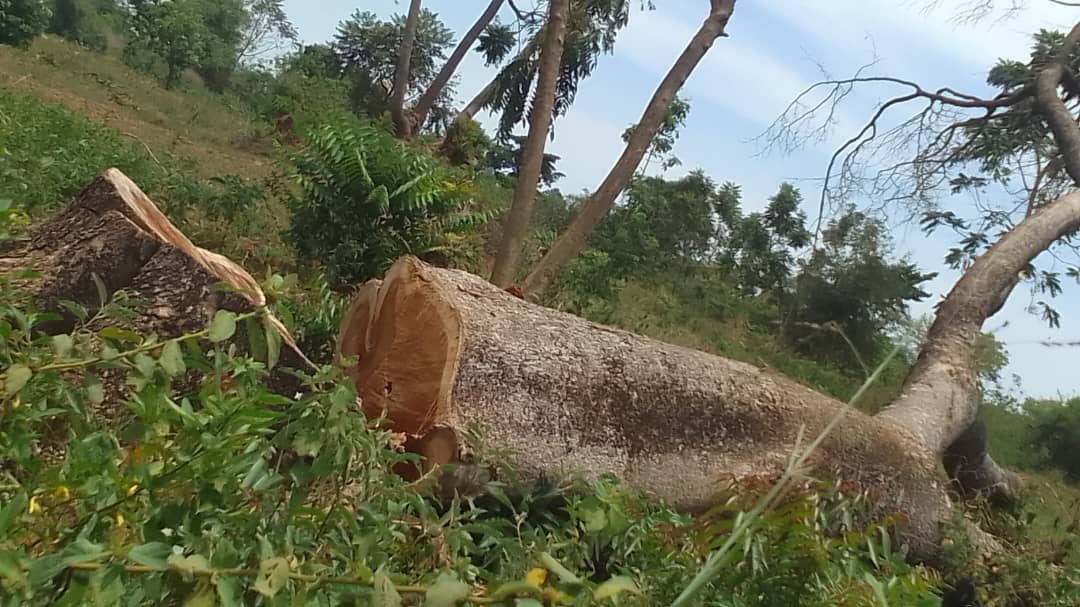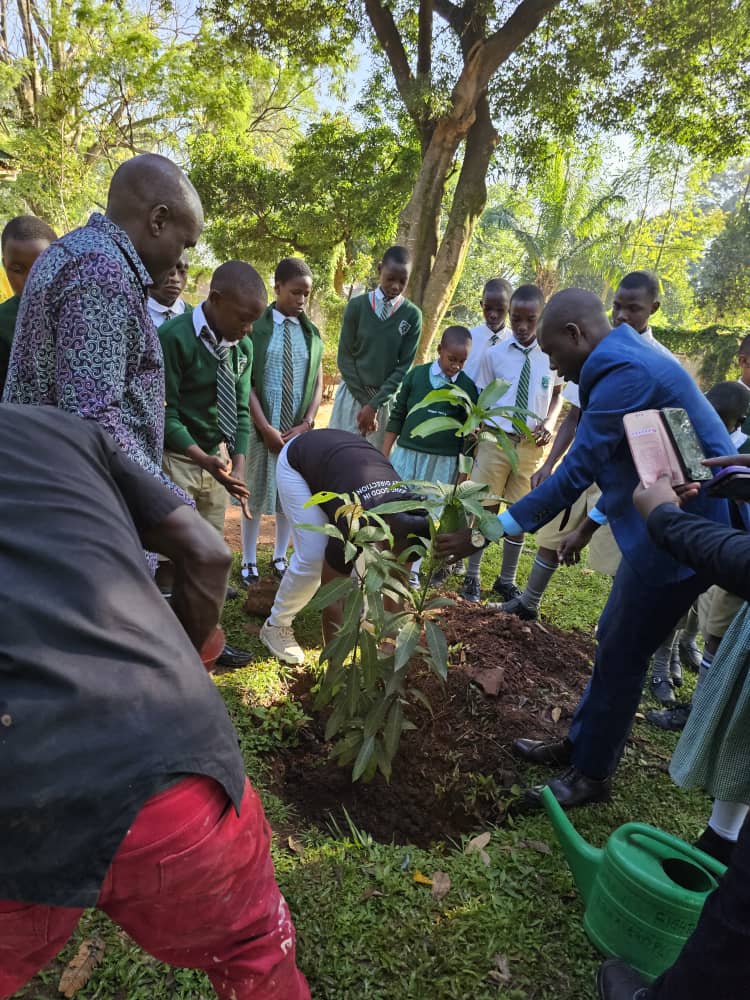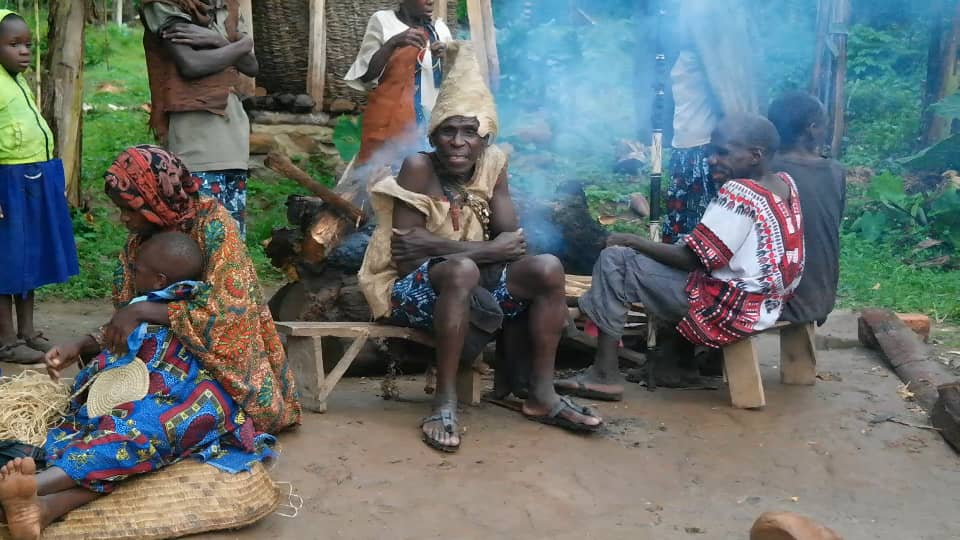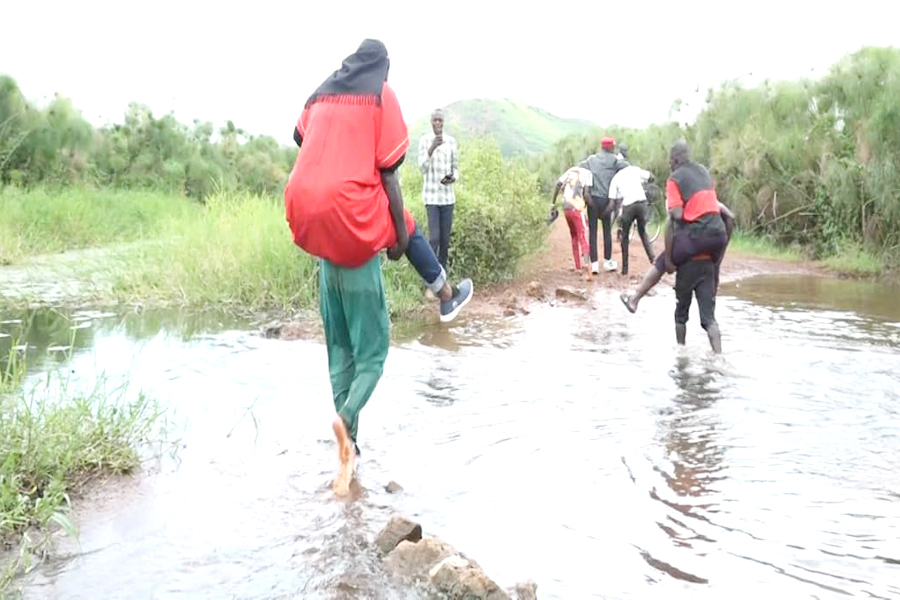OPINION: Ethiopia’s Tigray food crisis: Who is telling the truth?
On December 24, 1987, the Washington Post published a story titled: “In Ethiopia, Food is a Weapon of War”. In this startling article, author Blaine Harden intensely described how food was used as a fundamental weapon of war by both the Ethiopian government and rebel organizations during the country’s civil war prevailing at the time.
The rebel organizations included the Eritrean People's Liberation Front - which later caused the creation of Eritrea as an independent nation - and the Tigray People's Liberation Front (TPLF) - which claimed to be fighting not for independence from Ethiopia, but to topple the regime, and give Tigrayans a voice in a new national government.
Harden observed that the famine fight was a battle over rights to fill the stomachs of the peasantry. And according to interviews with Tigrayan peasants, the government used food aid to lure drought victims from rebel-held areas to the feeding camps. Once there, they were forcibly "resettled" -- taken on buses and planes to southern Ethiopia, safely beyond the reach of rebel food relief.
Further, Harden quoted a UN High Commissioner for Refugees representative as saying: "He who controls roads controls food. He who controls food controls the people. This time around, the rebels in Eritrea and in Tigray are prepared to play much harder ball in terms of controlling the people".
While the dynamics may be different, the resemblance of the events described in the story above and today’s food crisis in Tigray, 34 years later, is unbelievably close, with almost similar players. It is a true definition of ‘history repeating itself’.
Today, the war in Ethiopia’s Tigray region has become a grinding stalemate. Famine is the latest chapter in a conflict that has spanned over a year, with many accusing the government and rebels of using food as a weapon of war.
The worsening food crisis in the region has pitted three parties - the Ethiopian government, the United Nations (UN) and the Tigray forces - against each other. Prime Minister Abiy Ahmed and other senior government officials have insisted that there is no hunger in Tigray. They are blaming the Tigray forces for the troubles with food delivery. They also continue to accuse humanitarian groups of supporting, even arming, the Tigray fighters.
On the other hand, the UN blames the crisis on Ethiopia’s government and it claims that the Ethiopian army routinely blocks aid workers from delivering food for millions of Tigray civilians living under dire conditions. The UN aid chief Martin Griffiths recently said: "This is man-made; this can be remedied by the act of government".
In truth, none of the parties is entirely innocent and in one way or another, they have all contributed to the escalating food crisis. And behind the various contradictory press statements made for or by either side lies a brutal human tragedy.
According to Al Jazeera, starvation has been Ethiopian government’s weapon of choice. Prime Minister Abiy Ahmed’s famine plan for Tigray was simple and relentless. For eight months, his soldiers – and their Eritrean allies – pillaged and ransacked Tigray.
“They stole and burned food, stopped farmers from ploughing the land, looted and vandalised clinics and hospitals, ripped up water pipes and damaged water pumps, terrorised women and girls with rape and threats of rape, and helped themselves to much of the relief food delivered from outside”, says Al Jazeera.
But while the allegations made against the Ethiopian government may hold truth, there are reliable reports which indicate that the TPLF fighters have also been involved in attacking food trucks and aid personnel. In fact, the United States has accused the TPLF fighters of looting aid warehouses in the areas they have captured.
And as we navigate through this crisis, we should not forget that before Abiy first took office in April 2018, the TPLF leaders had dominated the Ethiopian federal government for 27 years. But even during this time, hunger was a perennial threat in Tigray, a heavily agricultural region, prone to drought and locust plagues.
Available data indicates that nearly one million people were already dependent on food aid before the conflict between the federal government and the TPLF began. And now, the UN World Food Program indicates that the number of those in need of emergency food has soared to 5.2 million.
The UN and its staff have also been involved in a series of serious allegations, especially those concerning the “meddling in the internal affairs of Ethiopia” and being TPLF sympathisers. This actually contributed to the recent expulsion of several UN officials from the country.
In addition, the UN has been blamed for turning a “blind eye” and ignoring the crisis as it unravelled. The BBC recently observed that in the months after the war broke out, the data provided by the UN Office for the Co-ordination of Humanitarian Affairs showed a steadily deteriorating humanitarian crisis, culminating in the estimate of 400,000 people being in phase 5 of the UN-backed Integrated food security Phase Classification system.
Despite the UN’s own assessment that there were famine conditions (phase 5) in Tigray, timely action was not taken. By the time it intervened, the situation was out of control, with severe financial constraints. The UN now estimates that it needs $350m in additional funding by December for the response in Tigray, and $1.3 billion for Ethiopia as a whole.
Honestly, I don’t’ really know who is right or wrong. But if it is true that the Ethiopian government and/or the TPLF are starving their own people, they are literally grabbing a sword not by its handle, but by its blade which is slowly slicing the country apart.
The food crisis is undoubtedly leading Ethiopia to ruins. But in my considered view, not all hope is lost. Because through dialogue, there’s still a chance for peace to return to Tigray and Ethiopia as a whole and the fact is, in the realm of power, there are no permanent enemies.
Mr. Brian Mukalazi is the Country Director of Every Child Ministries Uganda.













